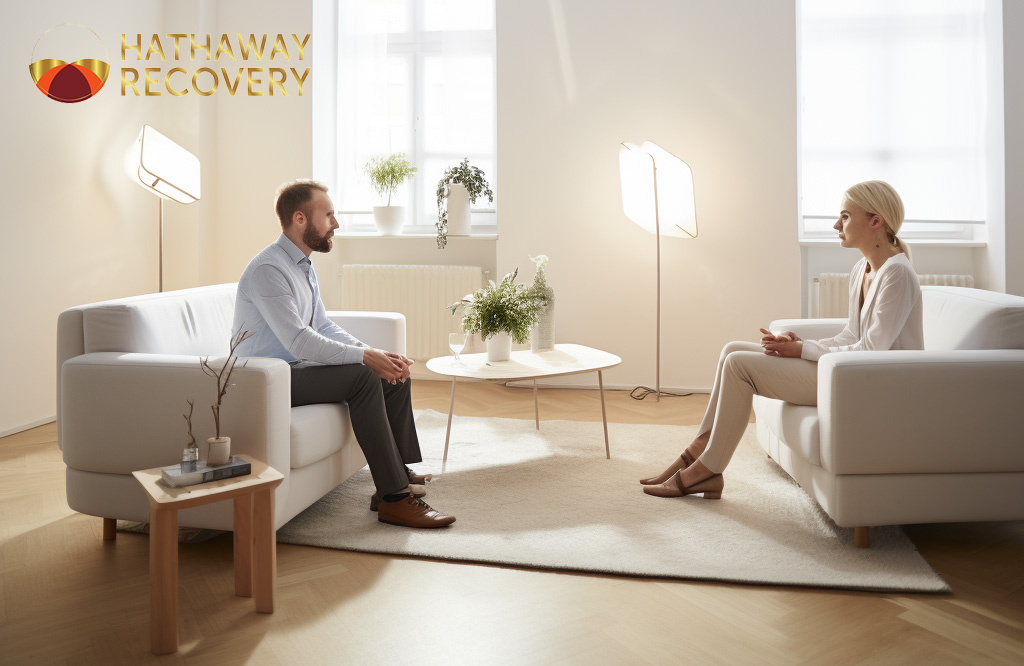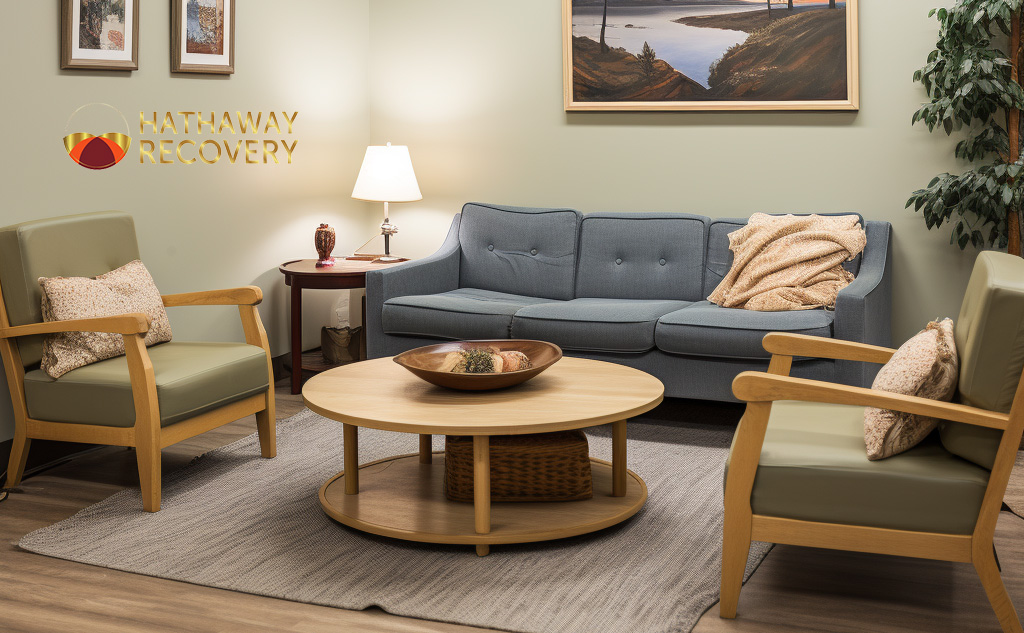Choosing and assessing the best treatment program for you can be difficult and confusing. Given there is no “one-size-fits-all”-approach to recovery, we have compiled a list of the most critical, evidence-based treatment methods for you.
The first step to recovery is admitting that you have a problem with addiction. You may be at a crossroads after that, with a variety of options for treatment programs and methods. Road signs may refer to “inpatient care”, “outpatient services”, “Emotional regulation”, “SMART Recovery”, or abbreviations like “DBT”, ACT”, or “MAT”.
Where to go, what to choose? The best treatment program for you will depend on several factors, including your age, gender, the substance that you abuse, your social support, and even your health history. Don’t give up. Keep reading, and don’t go back.

Inpatient or Outpatient Treatment Program?
First, you need to decide where the treatment will take place. In general, treatment programs for substance abuse disorder (SUD), are divided into two groups that differ in intensity. These are “inpatient”, “residential”, and “outpatient”.
- Inpatient Drug Treatment
You will be living at a facility for addiction treatment that provides 24-hour medical care and support. The facility can provide emotional and psychological support during critical times of your stay. Inpatient treatment is a good option if you are undergoing medical detoxification and require close clinical supervision in a supportive and supervised environment.
Inpatient treatment is often beneficial for people whose daily lives, work environment, or social environment are too triggering and offer drug- and alcohol-using opportunities. Inpatient treatment removes these triggers and restricts access to alcohol or drugs. Inpatient treatment can be compared to “a safe bubble”, and it may be difficult to return to your daily life as you are still in the same environment. It may be best to move to a sober environment for a while before slowly resuming daily activities.
- Outpatient Treatment Program
Outpatient treatment, unlike inpatient care, is often available near your home and can be done at a clinic or treatment center run by a psychiatrist, psychologist or psychotherapist. Sessions are usually scheduled every week or maybe even fortnightly. This is a good setting for people who are able to manage their daily lives and responsibilities.
You can live in your home or another safe place while being active with your family, professional, and personal responsibilities. Outpatient programs are usually used to treat addictions which don’t need round-the clock supervision. You regularly visit the treatment center of choice for medical, psychiatric, and/or psychotherapy services.
- Intensive Outpatient (IOP)
IOP is often recommended to those with more severe addiction problems who need more intensive treatment but do not want to enter inpatient care. IOP can offer similar treatment to an inpatient setting, but the frequency and number of sessions vary greatly. Others may have sessions that last two to three hour three times a week, while others offer multiple sessions daily.
Those who have tried low-frequency treatment but haven’t managed their SUD successfully can consider intensive outpatient therapy. IOP offers a higher level of supervision that may assist in staying sober or controlling alcohol or drug use. It is important to live in a supportive environment for both regular outpatient and intensive outpatient treatments.
Although the settings described differ in intensity, living conditions, and cost, they all use evidence-based treatments that have been evaluated scientifically and proven to work.

Treatment Methods
Each of these evidence-based recovery practices has a unique focus. Hathaway Recovery is one of many treatment centers that may combine elements from several practices in order to meet your specific needs.
- ACT (Acceptance Commitment Therapy).
ACT encourages you to embrace and accept your emotions, rather than deny and struggle with them. This will help you move forward and make the necessary changes in your life.
- CBT (Cognitive Behavioural Treatment)
CBT is an example of psychotherapy that helps identify and modify negative thinking patterns that lead to emotional distress and unhelpful behavior. By changing your thinking patterns, you can improve your coping abilities.
- DBT (Dialectic Behavioural Treatment)
DBT is based on CBT and focuses on two opposites, 1) accepting your experience and 2) working to change negative behaviours.
- EFT (Emotion Focused therapy)
EFT views our emotions as guides to our decisions and choices. It is therefore harmful to be unaware of emotions or to avoid them. Our clients learn how to lead healthy lives by using EFT.
- EMDR (Eye Movement Desensitization Reprocessing)
EMDR, or eye movement desensitization and reprocessing therapy (EMDR), is a psychotherapeutic technique that aims to alleviate distressing memories as well as traumatic experiences.
- IT (Interpersonal therapy)
This evidence-based, time-limited approach targets mood disorders. It also aims to improve interpersonal relationships and social functioning to reduce your emotional distress.
- MAT (Medication Assisted Treatment)
The use of medication in conjunction with counseling and behavioral therapies is known as Medication-Assisted Treatment (MAT). This combination offers a comprehensive addiction treatment. The MAT program is primarily used to treat opioid addiction, such as heroin or substances that contain opiates. The medication is designed to normalize the brain chemistry body functions and block the euphoric effect of the substances. It also helps relieve cravings.
- MI & MET (Motivational Enhancement Therapy & Motivational Interviewing)
MI is a method of interpersonal communication that uses open-ended questions, as well as other counselling techniques, to encourage behaviour change through a stronger personal motivation. The MET is a combination between assessments, goal-setting and MI. It aims to help you move from ambivalence about your recovery to a positive attitude.
- PMR (Progressive muscle relaxation)
PMR is a simple technique that involves tensing one muscle at a time and then relaxing it. It has been shown to reduce anxiety, stress and insomnia.
- rTMS is a form of repetitive transcranial magnetic stimulation.
rTMS is a non-invasive, painless treatment that uses magnetic pulses. It stimulates the part of your brain that controls mood. This helps reduce the symptoms of depression.

Hathaway Recovery: Treatment with a Difference
Hathaway Recovery redefines luxury rehabilitation near me by offering comfort and healing for those struggling with drug and alcohol addiction. Hathaway Recovery provides a compassionate and supportive environment for those who are embarking on a recovery journey. This is achieved through innovative treatment, luxury facilities and holistic therapies.
Other rehab centers are set apart by the facility’s commitment to treating mind, body, and spirit and its personalized approach.
Hathaway Recovery is the best choice for a luxury rehab program that prioritizes healing, comfort and comprehensive care. We provide unparalleled comfort and healing in order to help you make the first step towards lasting recovery.
Hathaway Recovery is a specialist in many areas. Here are some examples:
- How to overcome addictive behaviors and habits
- Get more independence and freedom from addiction
- Break the chains of addiction, depression and anxiety
- Learn how to build healthier relationships and improve your knowledge of relapse prevention
- You can learn to control your emotions and gain the tools and skills necessary to cope with PTSD.
- Diagnose and treat all mental issues
- We can help you overcome anxiety, depression, pain, and other problems.
Your privacy and comfort are important to us. Our luxurious, state-of-the-art facilities will make you feel at ease. Hathaway Recovery is staffed by a team of professionals and compassionate individuals who are ready to help you.
Our private rooms offer individual attention and a treatment program.
If you have questions, please contact the Admissions Department by calling (909)971-3333.
Information is kept completely confidential.
Do not miss this opportunity to improve your life.
- Counseling Individuals
- Group counseling
- Family Drug Education
- Relapse Prevention Therapy
- Counseling for Grief






